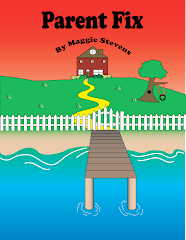So I know I said I was going to blog everyday, but since when have I followed through on anything? Well, I guess I follow through on some things. Lets just say I change gears alot. But I will at least try to get a little more regular, so here is something for the Holidays:
Managing a Meltdown
With all the excitement and stress of the holidays, it is prime time for children (and occasionally their parents) to have emotional meltdowns. What is the best way to handle it?
First, remember anger does no good for you or your child. Anger will only cause a bigger meltdown! To get a child calm, they must believe you are their ally....ready to help them meet their needs.
For young children: When a meltdown occurs, get down on the same level with your child so you can see eye to eye. Speak in a soft voice. Your demeanor will calm the child. In calm, reassuring words, ask them why they are upset. Then ask what you can do to help. When your child feels he is being understood, he will calm down. Let me give you an example.
Two children in a busy shopping mall are tired, crying and attracting attention. One mother, is embarrassed and demands the child stop crying immediately. The child knows that his feelings are not being heard and he continues to cry louder. The second mom sees that her child is genuinely upset. She focuses on the child, not on what others are thinking of her. She gently touches the child and asks, "What's wrong?" Then reassures "It's all right, I'm here. The mother's actions calm the child immediately.
Why does this work?
The mother is meeting the needs of her child. There is no threat to the child because he knows his mother's intention is to heal. The first mom is meeting her own needs. The second mom is meeting the needs of her child. When a child has this type of positive reaction from his parents over and over, the meltdowns happen less frequently. As a parent you are not only meeting your child's needs, but teaching them how to eventually calm themselves (by example)as they grow older.
For teenagers you handle the situation differently, but with the same goal in mind. Let's use the example of a teen battling with you over not wanting to attend an extended family Christmas party; instead, wanting to 'hang-out' with friends. Again first, remain stay calm. Let the child tell you why she does not want to go. Listen listen, listen and be understanding of her reasons. Ask and listen again to the details of what she and her friends plan to do. Then tell her every detail of the family party: who will be there, what will be going on, what food will be served, how long it will last. Express your love to her and how she will be missed if she chooses not to go. If you have shown a true understanding for your child's wants and needs, she will be more willing to negotiate with you. Maybe an hour at the family party and dad will drive her to meet up with her friends later. Teens are much more willing to agreeably join the family if they are not being forced.
The solution to meltdowns is to meet the needs of the child. This does not mean you are spoiling your child. Think how you feel when another adult listens and understands you. It gives you the confidence to move forward and accomplish the task at hand. Remember, when you meet the needs of your child, you are also strengthening the relationship.
The name of the book is
ParentFix by Maggie Stevens
www.parentfix.com
Sold at The King's English, Frost Book and online at Amazon
Friday, December 4, 2009
Subscribe to:
Posts (Atom)




